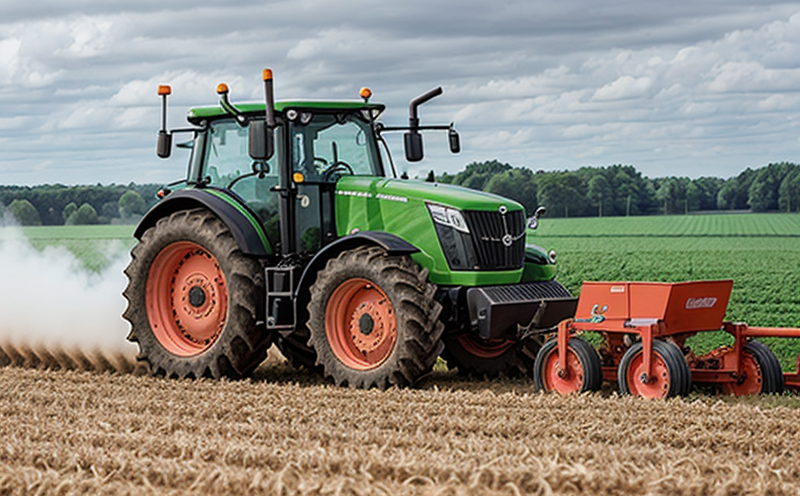Rotavator Efficiency Testing
Rotavators, often referred to as tillers or cultivators, are essential machinery in agricultural practices. These machines are designed to break up soil and prepare it for planting. The efficiency of a rotavator is crucial for ensuring optimal soil preparation which can lead to better crop yields.
The testing of rotavators involves evaluating multiple aspects such as the depth and uniformity of plowing, the speed at which the machine operates, the amount of power consumed, and the overall durability. This ensures that the machinery meets both local and international standards for agricultural equipment.
At Eurolab, we conduct comprehensive efficiency testing to verify the performance of rotavators in various conditions. Our state-of-the-art laboratory facilities allow us to simulate real-world scenarios where these machines will be used. We use a range of sophisticated instruments including soil moisture meters and penetrometers to measure how effectively the equipment can work under different soil types.
Our testing process begins with detailed inspection of the rotavator’s specifications and design parameters as per international standards such as ISO 10984:2017. We then calibrate our machines using these guidelines before conducting tests on site in controlled conditions. During the test, we measure several key performance indicators including fuel consumption rates, time taken to complete a specified area of land, and the depth of soil plowing.
One of the main challenges in rotavator efficiency testing is ensuring that the machine can operate effectively across diverse terrains and soil types. Our experts have extensive experience with various agricultural machinery and understand how different factors like slope angle, soil moisture content, and compaction affect performance. This allows us to provide accurate and reliable test results.
The data collected during these tests is analyzed meticulously using advanced statistical methods to determine the efficiency of each machine. We also consider feedback from operators who can provide valuable insights into how well the equipment performs under actual field conditions. The final report includes detailed recommendations for improving any areas where performance could be enhanced, ensuring that our clients get the best possible service.
Testing rotavators is not just about measuring their efficiency; it’s also about understanding their impact on sustainability efforts within agriculture. By optimizing soil preparation processes through efficient machinery, farmers can reduce energy consumption while increasing productivity and resource use efficiency.
- Comprehensive testing solutions tailored to the unique needs of agricultural machinery.
- State-of-the-art laboratory facilities equipped with the latest technology for precise measurements.
- Experienced team of engineers and technicians specializing in agricultural equipment.
- Adherence to international standards ensuring reliability and consistency in test results.
- Access to real-world simulation environments that replicate various field conditions.
International Acceptance and Recognition
The testing of agricultural machinery, including rotavators, is recognized globally for its importance in ensuring high standards. Machines approved through rigorous testing are accepted by a wide range of countries adhering to international standards such as ISO 10984:2017.
- ISO 10984:2017 specifies requirements for the design, manufacture, and performance of agricultural machinery used in soil preparation operations. Compliance with these standards ensures that rotavators are efficient and safe to operate.
Our laboratory is accredited by multiple international bodies including the International Organization for Standardization (ISO) and the European Committee for Standardization (CEN). This accreditation guarantees our clients that their products will meet stringent quality control requirements recognized worldwide. Our testing ensures compliance with these standards, making it easier for manufacturers to export their equipment into different markets.
Environmental and Sustainability Contributions
The efficiency of rotavators plays a significant role in sustainable agricultural practices by minimizing resource waste and improving soil health. Efficient machines consume less fuel, reduce greenhouse gas emissions, and promote better water retention capabilities within the soil.
We at Eurolab are committed to promoting sustainability through our testing services. By providing accurate efficiency data, we help manufacturers improve their products, leading to reduced environmental footprints and enhanced productivity on farms around the world. Our goal is not only to meet current standards but also anticipate future trends in sustainable agriculture.
Through our efforts, we contribute towards achieving global goals set forth by organizations like the United Nations Food and Agriculture Organization (FAO) aimed at improving food security while reducing environmental impacts from agricultural activities.





